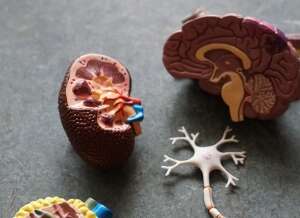Elena Kozlova, a doctoral student and co-author of the study, emphasized that such interventions before birth could play a crucial role in preventing long-term health issues.
Two new studies shed light on how prenatal factors, including probiotic supplementation and maternal food choices, could influence a child’s development and food preferences, with potential long-term health implications.
A groundbreaking study led by the University of California, Riverside, highlights the protective role of probiotics against toxic exposures during pregnancy. Specifically, the research found that supplementing the maternal diet with the probiotic Limosilactobacillus reuteri (LR) may reduce the harmful effects of polybrominated diphenyl ethers (PBDEs), chemicals commonly used as fire retardants. PBDEs are found in a wide range of everyday products such as upholstery, electronics, carpets, and even infant products, and have been shown to disrupt hormones and persist in the environment, contaminating air, water, food, and human tissues.
Exposure to PBDEs during pregnancy and breastfeeding has been linked to developmental issues, including autistic-like behavior and metabolic disturbances, as well as disruptions to the gut microbiome—a crucial factor in brain and metabolic health. The study, published in Archives of Toxicology, demonstrated that supplementation with LR, a probiotic that resides in the digestive tract and generates lactic acid, can help counteract these negative effects.
The researchers exposed pregnant mice to PBDEs and found that male offspring experienced delayed body weight gain and abnormal tooth eruption. However, when these mice were supplemented with LR, the negative effects were mitigated. Both the weight gain delay and timing of tooth eruption were normalized, suggesting that early interventions targeting the gut microbiota could help protect against developmental diseases linked to toxic exposure.
Elena Kozlova, a doctoral student and co-author of the study, emphasized that such interventions before birth could play a crucial role in preventing long-term health issues. “Using gut microbiota-focused therapies before birth through the mother may help protect against developmental and adult diseases linked to toxic exposures,” she said. Meanwhile, another study from Durham University explores how maternal food consumption during pregnancy may shape a baby’s food preferences. The research, which involved 32 three-week-old babies in the UK, found that babies whose mothers consumed kale or carrot powder during pregnancy reacted more positively to the smells of those vegetables. The study analyzed the facial expressions of the infants when exposed to the scents of kale and carrot, both of which their mothers had consumed during pregnancy.

The results showed that babies exposed to carrot powder responded with more “laughter-face” expressions and fewer “cry-face” reactions when smelling carrots, and similar reactions were observed for kale. This suggests that prenatal exposure to certain foods could help babies develop a more favorable emotional response to these foods, potentially influencing their long-term eating habits.
Professor Nadja Reissland, lead author of the study, noted that this finding could have implications for encouraging healthier eating habits in children. “Potentially, this means we could encourage babies to react more positively towards green vegetables, for example, by exposing them to these foods during pregnancy,” she said.
Together, these studies underscore the profound impact of maternal diet and probiotics on child development. From reducing the effects of toxic chemicals to fostering healthier food preferences, early interventions targeting the microbiome and food exposure may play a crucial role in shaping a child’s future health and well-being. As research continues, these findings could lead to new recommendations for expectant mothers, offering proactive ways to protect their children from developmental challenges and promote healthier eating habits.











